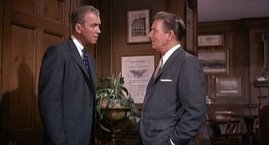September 13, 1999 was the beggining of the darkest era of humankind. The Moon was hurled out of Earth orbit by a massive explosion in Nuclear Waste Disposal Area 2, where nuclear waste from Earth has been dumped and stored on the dark side of the Moon. The 311 inhabitants of Moonbase Alpha were cut off from Earth, spinning through the cosmos on an unknown trajectory. Contact with the base was severed. The residents of its only base, Alpha, were never heard from again.
Until now.
2,901 days since the moon left orbit we have finally recieved a transmission from Moonbase Alpha.
Here is that final transmission.
Imagine an Earth where history did not write that we pulled back after the Apollo missions to the Moon; that we did not turn giant leaps forward into tiny, hesitant, almost backwards crawling motions. Instead, imagine history wrote that after we took those first few steps, we continued taking more, even bolder leaps, expanding lunar exploration, sending ever-increasing numbers of missions--robotic and human-crewed--into the rest of the solar system.
Disasters only increased our international resolve, especially after a brief but nearly catastophic war that vividly reminded us of the value of life, and prompted unprecedented multi-cultural, international cooperation that sped up humanity's progress into space.
By the year 1999, humanity had invented new and more powerful spaceships (including one type named in honor of the first manned lunar lander--"Eagle"), partially domesticated the forces of artificial gravity, taken up permanent residence on the Moon, and was on the verge of launching the first people beyond the confines of our solar system. We were also dealing with the difficult problem of what to do with massive amounts of nuclear waste. Years before, we had begun storing it in special dumps on the far side of the Moon.
This is where Space: 1999 begins.
As the countdown to the launch of humanity's first extra-solar spaceship continues, a new commander is sent to Moonbase Alpha to deal with a deadly situation threatening the launch; while no one is aware that another, more sinister countdown is already underway, one that is set to reach zero much sooner, and affect far more than the mission. People have been dying on Moonbase Alpha, and the new commander quickly finds the very adminstrator who assigned him to deal with the situation has also been obscuring its severity.
Once it becomes clear that the warning signs point to an overlooked form of chain reaction building up in the nuclear waste dumps, they try to stop it. The futility of their attempts becomes horrifyingly clear in the light of a sudden false dawn of an enormous nuclear explosion, which in its minute-long burn acts as a tremendous engine, propelling the Moon out of the solar system, to begin an incredible--however unexpected and involuntary--journey of discovery. They become castaways on a fast-floating island--a Moon they can rarely control--encountering alien beings and forces, as well as other human or no longer quite-so-human castaways.
The Alphans have only their wits, hope, and limited resources to use as they try to survive in a sometimes friendly, but often indifferent or hostile universe; one that is filled with a bewildering array of aliens ranging from the near-human, to the bizarre or even horrifying, to the virtually incomprehensible. The Alphans are told by one alien that their "odyssey shall know no end" and that they "will prosper and increase in new worlds"; while others tell them they "have no future", and are "a contaminating organism--a fatal virus." Is there any truth to be found?
Almost completely cut off from an Earth which itself is dying, they struggle to find a hospitable planet to settle on; trying to escape their confined, almost sterile moonbase where survival is on a knife's edge. The wearying damage they continue to take--physically, mentally, and emotionally--threatens to drive them to madness or extinction. The survivors increasingly draw together; and they even welcome an intelligent, beautiful, alien shape-shifter orphaned when the Alphans are forced to destroy her world.
The choices they make are often surprising and even shocking. In often perilous times, there are no easy answers. It is often important and even vital to find the right way: the way the Alphans will not only survive, but avoid devolving into some insane, brutal semblance of themselves. There must always be hope.
This, then, is Space: 1999, the story of the strong-willed people of Moonbase Alpha, fighting to survive overwhelming odds in an unpredictable, often dangerous yet beautiful universe, learning about it and themselves--growing in unexpected ways as they struggle to find their place in the universe.
Ye olde intro:
While contractual obligations with Martin Landau (who would later win an Oscar) and Barbara Bain (a then three-time successive Emmy winner) ensuring them a large percentage of screen time left little room for growth and development of the series’ secondary characters—with the notable exception of co-star Barry Morse’s masterful portrayal of Professor Victor Bergman—what many perceive as "wooden" acting is actually superior acting of a caliber and with a subtlety not generally found on weekly television.
Space: 1999’s first season, with few exceptions, is a canvas of subtle performances painted in small moments rather than broad strokes, the stuff of films rather than weekly television, performances that involve the viewer, sometimes forcing him to think and consider the motivations of the characters beneath what might at first appear as ambiguous or restrained actions. Rather than three-dimensional cutouts, these are "real" and complex characters who, just like people in one’s everyday life, aren’t completely obvious, and don’t wear their emotions on their sleeve. It would be nice to see a revised series someday.
The best dvd promo video ever:
Thursday, August 23, 2007
Subscribe to:
Post Comments (Atom)










3 comments:
I kinda remember loving this show as a kid, even more than Star Trek!
I always wanted to see Earth:1999 - stories of survival on a planet decimated by the suddenly violent disappearance of the moon.
check out the dvd promo. Its a great parody.
Post a Comment